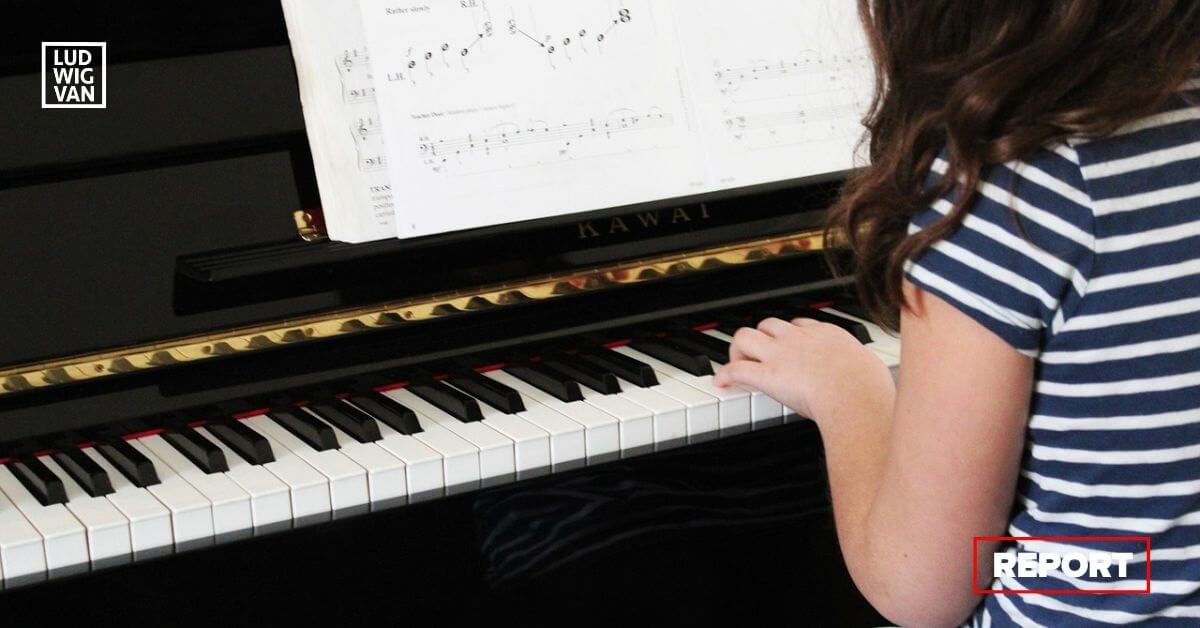
A new research study suggests that only a few weeks of music lessons can result in improvements to the way we process audiovisual information.
Researchers at the University of Bath published their findings in the journal Scientific Reports in November 2022. In the introduction, they begin by referencing prior research which revealed that musicians have enhanced abilities when it comes to audiovisual recognition. But, they ask, is that an ability that is directly caused by studying and practising music?
In particular, they noted the potential for treatment for people living with autism spectrum disorders or ASD, whose abilities to process audiovisual and emotional information are reduced.
The participants, 31 adults in total, were randomly assigned to one of three groups. For a period of 11 weeks:
- One group received one hour of piano instruction per week;
- One group listened to music (the same that was practised by group one) for one hour a week;
- The third group was a control who did neither;
- All three groups were tested bi-weekly to compile the results.
The researchers measured several parameters that related to processing audiovisual as well as emotional information. That included the ability to recognize discrepancies between audio and visual stimuli, the ability to recognize moods from facial expressions, autistic traits, as well as stress and mood.
Learning to play the piano
The music training group was given one-on-one piano lessons on a Yamaha P-35 at the University, with parameters that will be familiar to piano students around the world:
- 20 minutes of finger exercises from Hanon: the Virtuoso Pianist, Book 1: in Sixty Exercises for the Piano;
- 40 minutes learning and practising a song from the grade one piano exam list.
As the paper notes, learning to play an instrument is quite demanding, and uses several processes within the nervous system, including the sensory and motor systems as well as cognition at different levels. Student musicians have to learn how to move along to a musical score, and then listen for the results, adjusting as necessary. Visual cues and finger movements become synchronized.
After all that, they have to find a way to play with expression too, using tone, tempo, dynamics and other elements. It’s hardly surprising that musicians would display enhanced abilities when it comes to processing multisensory and emotional information as compared to non-musicians.
Musicians are generally better able, for example, to detect when audio and visual information are out of sync. It’s connected to the areas of the brain that deal with keeping time.
What they found
The results were interesting, and while the authors noted the limits of their single study, they were unequivocal.
- Those who completed music training were the only group to show “significant improvement” in audiovisual processing.
- That group also showed reduced levels of depression, stress, and anxiety.
None of the groups, however, showed improvement in emotional recognition when it came to facial expressions, with one exception. Those who received music training displayed “a greater improvement in accuracy when recognising joy”.
The advantages appeared after only three weeks of training.
The researchers conclude by noting that future studies could delve into the potential for music training as therapy for people living with autism, as well as depression and stress related problems.
It also adds to the growing body of evidence that reveals the distinct advantages of music education for everyone.
#LUDWIGVAN
Get the daily arts news straight to your inbox.